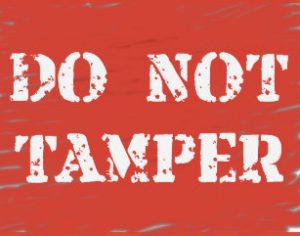Raboyseyee and Ladies,
Mitzvah Tampering:
So happens that this past Tuesday night, the Oisvorfer’s stomach went on the blink, disastrous mamish. What caused it, ver veyst, ober a long night it was and Wednesday even worse. In and out of the bathroom it was. Something bad I ate? Was the eishes-chayil trying to get rid of me once and for all? Ober why is this personal information being shared? Who shares their bowel movements with hundreds of thousands around the world? Why discuss defecation as an introduction to the parsha? Is defecation to be found in the heylige Toirah? In our parsha efsher? We shall answer all these and other questions below. The good news: thank the RBSO that by Wednesday night at approximately 10:30pm the symptoms began to abate and not a moment too soon as the Oisvorfer has nothing left to give as he writes this week’s anniversary edition.
Shoin: what more can be said about the parsha in this, our tenth review of Vo-eschanan? Speaking of the number ten, with this week’s parsha posting the Oisvorfer marks a full ten years since his first parsha review was sent out to but one person. And as we begin year ten, the heylige Oisvorfer’s parsha review is being read by hundreds of thousands all over the world. Mamish!! And certain chasidishe rebbes wanted to, and still do, ban the use of the internet!? As an aside, many of these same rebbes and sects still raise funds through raffle and other money raising campaigns over the internet. Shoin: when it comes to money, chumras (restrictions added by rabbis), the internet is suddenly glatt kosher. Does this make sense? Ober, who says everything has to? Who gave them the right to ban the internet? To impose and make verboten that which is clearly not? Ver veyst? It was not the RBSO, nor Moishe as we will read below. Let’s get real: the internet is by far the greatest marbitz Toirah (disseminator of Toirah) of all times!
 Ober, let’s begin with happy anniversary wishes to the Oisvorfer and to his webmaster Michael Kogan, the person who initially urged for the reviews to be posted onto a website. He built and maintains it. Each week he diligently tries to find images which best depict the few clues I send him. As well, he sifts through all the comments and forwards those he believes worthy of a response. Yashar koiach Mike! A shout-out as well to the eishes-chayil Lisa, for her assistance. In the earlier years, with spell checking and editing, and with providing the information on various mazel-tov shout outs. She has since retired. And a big shout out to our friends the Herensteins, Terri and Andrew, who for the past ten years have always invited the Oisvorfer and his eishes chayil to spend a shabbis with them –more often than not, over Shabbis Nachamu- in the heylige Hamptons, and in whose summer house, the first review was ever written to but one person. And here we are: mazel tov!
Ober, let’s begin with happy anniversary wishes to the Oisvorfer and to his webmaster Michael Kogan, the person who initially urged for the reviews to be posted onto a website. He built and maintains it. Each week he diligently tries to find images which best depict the few clues I send him. As well, he sifts through all the comments and forwards those he believes worthy of a response. Yashar koiach Mike! A shout-out as well to the eishes-chayil Lisa, for her assistance. In the earlier years, with spell checking and editing, and with providing the information on various mazel-tov shout outs. She has since retired. And a big shout out to our friends the Herensteins, Terri and Andrew, who for the past ten years have always invited the Oisvorfer and his eishes chayil to spend a shabbis with them –more often than not, over Shabbis Nachamu- in the heylige Hamptons, and in whose summer house, the first review was ever written to but one person. And here we are: mazel tov!
We began by asking what more can be said after reviewing this parsha these past nine years? Can anything new be added? Was too much said? Should some content efsher have been deleted? Nu, speaking of additions and deletions, so happens that in this week’s parsha – and a topic we have not covered in the past- a giant of a leader by the name of Moishe, discusses mamish this very topic. Let’s set the stage. We are in the year 2488 since creation, and the Yiddin are mamish weeks away from finally entering the Promised Land. Moishe will not be accompanying them, his visa having been rescinded. Neither will hundreds of thousands of men who were above the age for 20 when they left Mitzrayim, they all died in the midbar. Why? Seemingly they committed various sins that angered the RBSO; there were many opportunities. 24,000 Yiddin died as we were reviewing parshas Bolok; seemingly, they were all sentenced to death for having partaken in a mass sex orgy which also included some weird form of idol worship with the Moabite shiksas arranged for them courtesy of Bilham and his Midianite cohorts. The RBSO was quite angry. Ober why are we again reviewing their ignominious demise? Are they not long dead and buried? We shall address that specific question just below.
In his last 35 days on this earth, Moishe is reviewing the Yiddin’s indiscretions of the past forty years. As well, he is giving the Yiddin their last-minute charge on how to be good. Oh, and he also throws in another 200 mitzvahs not previously revealed to the Yiddin. 200 brand new mitzvis? Earlier versions of the Art Scroll Chumish (Stone Edition) had the number at 100, ober that has –in recent years- been increased to 200. How? Were new mitzvis added? Ver veyst! A few of them, including permission for a Jewish soldier to discharge his gun, if you chap, with a shiksa, is of particular interest to the Oisvorfer’s readers, ober chap nisht…we will cover that topic in a few weeks. This week, in addition to repeating the Aseres-Hadibrois (the Ten Commandants) and also teaching the Yiddin the first portion of what has become known as the She-ma prayer, he also, in perek 4, throws in a few somewhat unusual commandments. It is expressly forbidden to add or detract from the heylige Toirah. We cannot add to the 613 mitzvis, nor declare any void. That avada seems quite logical to many: if the RBSO is perfect and avada He is, then es lust zich tzu farshtein (it’s quite logical to understand and chap) that His Toirah –as given to us- is perfect. Accordingly, adding or subtracting from the commandments implies that the Toirah is, in some way, deficient. And listen to this: these very same instructions will be repeated in Parshas Re’ey and there, the instructions are counted among the 613 commandments. Why aren’t they counted here when first introduced by Moishe? Ver veyst . There the heylige Toirah teach us (Devorim 13:1) azoy:
1. Everything I command you that you shall be careful to do it. You shall neither add to it, nor subtract from it. |
אאֵ֣ת כָּל־הַדָּבָ֗ר אֲשֶׁ֤ר אָֽנֹכִי֙ מְצַוֶּ֣ה אֶתְכֶ֔ם אֹת֥וֹ תִשְׁמְר֖וּ לַֽעֲשׂ֑וֹת לֹֽא־תֹסֵ֣ף עָלָ֔יו וְלֹ֥א תִגְרַ֖ע מִמֶּֽנּוּ: |
In other words: the heylige Toirah is perfect as given Once again, the RBSO states that His Toirah is complete and perfect and that it is offensive in His eyes for anyone to seek to improve it by adding new, or by removing any of His commandments. Why taka are these instructions repeated twice? Also an excellent question and taka a number of medroshim (exegetes) suggest that the plural version in our parsha was intended for the judges of the Sanhedrin–the Supreme Court of Israel. And the lesson to them? Even important leaders, with all of their knowledge and authority, dare not add or subtract from the words of the heylige Toirah. We will revisit that concept below. And the instructions as found in parshas Re’ey and quoted above, were meant for individuals, regular Yiddin like most of you and me. Let’s read this week’s instruction. Says the heylige Toirah (Devorim 4:2), azoy:
2. Do not add to the word which I command you, nor diminish from it, to observe the commandments of the Lord your G-d which I command you. |
בלֹ֣א תֹסִ֗פוּ עַל־הַדָּבָר֙ אֲשֶׁ֤ר אָֽנֹכִי֙ מְצַוֶּ֣ה אֶתְכֶ֔ם וְלֹ֥א תִגְרְע֖וּ מִמֶּ֑נּוּ לִשְׁמֹ֗ר אֶת־מִצְוֹת֙ יְהֹוָ֣ה אֱלֹֽהֵיכֶ֔ם אֲשֶׁ֥ר אָֽנֹכִ֖י מְצַוֶּ֥ה אֶתְכֶֽם: |
Moishe specifically instructs the Yiddin not to “increase” or “decrease” the mitzvis the RBSO has set forth. What is the significance of “increasing or decreasing” the commandments? We shall soon find out, ober, so far so good until we get to the very next thing Moishe tells them. Ober to chap its significance, let’s read pisukim 1-4 in order.
| 1. And now, O Yisrael, hearken to the statutes and to the judgments which I teach you to do, in order that you may live, and go in and possess the land which the Lord, G-d of your forefathers, is giving you. | אוְעַתָּ֣ה יִשְׂרָאֵ֗ל שְׁמַ֤ע אֶל־הַֽחֻקִּים֙ וְאֶל־הַמִּשְׁפָּטִ֔ים אֲשֶׁ֧ר אָֽנֹכִ֛י מְלַמֵּ֥ד אֶתְכֶ֖ם לַֽעֲשׂ֑וֹת לְמַ֣עַן תִּֽחְי֗וּ וּבָאתֶם֙ וִֽירִשְׁתֶּ֣ם אֶת־הָאָ֔רֶץ אֲשֶׁ֧ר יְהֹוָ֛ה אֱלֹהֵ֥י אֲבֹֽתֵיכֶ֖ם נֹתֵ֥ן לָכֶֽם: | |
2. Do not add to the word which I command you, nor diminish from it, to observe the commandments of the Lord your G-d which I command you. |
בלֹ֣א תֹסִ֗פוּ עַל־הַדָּבָר֙ אֲשֶׁ֤ר אָֽנֹכִי֙ מְצַוֶּ֣ה אֶתְכֶ֔ם וְלֹ֥א תִגְרְע֖וּ מִמֶּ֑נּוּ לִשְׁמֹ֗ר אֶת־מִצְוֹת֙ יְהֹוָ֣ה אֱלֹֽהֵיכֶ֔ם אֲשֶׁ֥ר אָֽנֹכִ֖י מְצַוֶּ֥ה אֶתְכֶֽם: | |
3. Your eyes have seen what the Lord did at Baal Peor, for every man who went after Baal Peor, the Lord your G-d has exterminated from your midst. |
געֵֽינֵיכֶם֙ הָֽרֹא֔וֹת אֵ֛ת אֲשֶׁר־עָשָׂ֥ה יְהֹוָ֖ה בְּבַ֣עַל פְּע֑וֹר כִּ֣י כָל־הָאִ֗ישׁ אֲשֶׁ֤ר הָלַךְ֙ אַֽחֲרֵ֣י בַֽעַל־פְּע֔וֹר הִשְׁמִיד֛וֹ יְהֹוָ֥ה אֱלֹהֶ֖יךָ מִקִּרְבֶּֽךָ: | |
| 4. But you who cleave to the Lord your G-d are alive, all of you, this day. | דוְאַתֶּם֙ הַדְּבֵקִ֔ים בַּֽיהֹוָ֖ה אֱלֹֽהֵיכֶ֑ם חַיִּ֥ים כֻּלְּכֶ֖ם הַיּֽוֹם: |
Stop and hold the presses! Mistama you have several questions, or should. Ershtens, what exactly did Moishe mean? What’s pshat we cannot add nor subtract to mitzvis? Is there a connection between the adding and taking away of mitzvis, and extreme punishment? Is the 3rd posik a warning of what might befall those who add or subtract to the 613 mitzvis given? And taka so it would appear as we read posik three which recounts how the RBSO smote the 24000 Yiddin who partook in the sex orgy with the hot shiksas at the avoido zoro party. Recall that 24,000 partook not just in some lewd sex; the party also included some strange form of avoido zoro (idolatry) with the deity known as the Baal Pe’or. Shoin, for those who forgot, this particular form of idolatry required its participants and practitioners to defecate in front of some idol. Why defecating is considered idolatry, ver veyst. Taka a good defecation feels good as many can attest, ober can it be conflated with avoido zoro? In any event, Moishe reminds the Yiddin that the RBSO was quite upset and warns them by recalling the incident. It appears that he does equate mitzva tampering with the sin of the 24,000 hapless Yiddin who partied with the Baal Peor. Seemingly those who add to, or subtract from the mitzvis given, are subject to the same type of capital punishment? WARNING: DO NOT TAMPER WITH THE MITZVIS GIVEN IN THE TOIRAH. OMG! What’s pshat? What is the connection between posik 2 which tells us not to add or diminish, and posik 3 which reminds us about the comings and goings –literally- of 24,000 Yiddin just after they partied at Baal Peor?
 And while you’re contemplating the connection between the orgy/idol worship party to the addition or subtraction of mitzvis, let’s also try to chap why this was the first thing Moishe warns the people about as the parsha begins. Let’s recall that Vo’eschanan –as mentioned above- also contains a repetition of the Asers Hadibrois and one paragraph of the Shema prayer. Why not lead with any of these? One would think the Aseres Hadibrois and the Shema are of such significance that they would trump any historical review of the 24,000 Yiddin who died after partaking. Why was Moishe reminding them of the incident? Moreover, what taka is the connection of not adding and or subtracting to the myseh (story) with the Moabite shiksas? Why begin with prostitution? Why is the warning against adding mitzvos juxtaposed beside remembering about the destruction that took place when 24,000 Yiddin came and went during worship of the idol referred to as Baal Peor? Shoin: have we asked the same question with enough different words? We have! Nu and as you can only imagine, the Oisvorfer was not the first to ask these questions and many have chimed in with answers.
And while you’re contemplating the connection between the orgy/idol worship party to the addition or subtraction of mitzvis, let’s also try to chap why this was the first thing Moishe warns the people about as the parsha begins. Let’s recall that Vo’eschanan –as mentioned above- also contains a repetition of the Asers Hadibrois and one paragraph of the Shema prayer. Why not lead with any of these? One would think the Aseres Hadibrois and the Shema are of such significance that they would trump any historical review of the 24,000 Yiddin who died after partaking. Why was Moishe reminding them of the incident? Moreover, what taka is the connection of not adding and or subtracting to the myseh (story) with the Moabite shiksas? Why begin with prostitution? Why is the warning against adding mitzvos juxtaposed beside remembering about the destruction that took place when 24,000 Yiddin came and went during worship of the idol referred to as Baal Peor? Shoin: have we asked the same question with enough different words? We have! Nu and as you can only imagine, the Oisvorfer was not the first to ask these questions and many have chimed in with answers.
Who and or what was this Baal Peor? A piece of wood? Stone efsher? A person? And how it was worshipped. Nu, to chap, which the Yiddin did, if you chap, let’s learn a myseh or two as retold in the heylige Gemora (Sanhedrin 64a) which teaches us azoy:
Said Rav Yehudah in the name of Rav; There was once a gentile woman who was very ill. She vowed: ‘If I recover from my illness, I will go and worship every idol in the world.’ She recovered, and proceeded to worship every idol [she could find]. Ober when she came to Peor, she asked its priests, ‘How is this one worshipped?’ They told her, ‘One eats greens and drinks strong drink, and then defecates before the idol.’ As an aside, for those who suffer from IBS (irritable bowel syndrome) more associated with constipation, Rashi tells us that the diet consisted of beets and beer which when consumer together loosen the bowels. Shoin! And how many times has the Oisvorfer told you how everything in this world can be found in the heylige Gemora, including the cure for many gastrointestinal issues? Many! The woman responded, ‘I’d rather become ill again than worship an idol in such a [revolting] manner.’ And if that weren’t enough and avada it should be, the heylige Gemora tells another Baal Pe’or story which goes like this: Sabta, a townsman of Avlas, once hired out a donkey to a gentile woman. Sabta led the donkey, she was the rider. When she came to Peor, she said to him, ‘Wait till I enter and come out again.’ When she came out, he told her, ‘Now you wait for me until I go in and come out.’ ‘Are you not a Jew?” (and don’t Jews abhor idol worship)?’ she asked. He answered: “what do you care.” He then entered, defecated before the idol. And….listen to this: says the Gemora..and when done, he wiped himself in the idol’s nose, whatever that means. Mistama toilet paper had yet to be invented, ver veyst. Raboyseyee, this is all found in the heylige Gemora, check it out.
 The bottom line as we understand this particular avoido zoro is this: the way people served this idol was to get naked in front of it and then defecate. Avada it’s always good to be relieved, ober why was this idol so attractive to many of the Yiddin at that time? Were they constipated? Too much munn?
The bottom line as we understand this particular avoido zoro is this: the way people served this idol was to get naked in front of it and then defecate. Avada it’s always good to be relieved, ober why was this idol so attractive to many of the Yiddin at that time? Were they constipated? Too much munn?
Ober said Rav Yaakov Kaminetzky so gishmak, azoy: perhaps their intention was to use this bizarre ritual as a tool for self-growth. The biggest fear for many people is shame; they will do anything to avoid being embarrassed. There is a famous adage in Judaism that “a person who fears embarrassment can never learn.” If one’s fear is so paralyzing that he or she won’t ask a question in a classroom or situation where they mamish need to know the answer but is afraid or embarrassed to ask, that person will be severely handicapped in his or her ability to learn. No one wants to be seen naked or relieving himself, and therefore they developed an idea to help them confront their fear of embarrassment. Being naked or defecating are human functions; let me confront my fear and do it in public! This is the best way to overcome the debilitating fear that so adversely affects my life. The 24,000 avada realized that idolatry is forbidden by the Toirah but in this case, they mistakenly thought, the payoff is so great that it is virtually a mitzva because when overcoming one’s fears, would result in a better and more productive Jew. The reason the Baal Peor incident is juxtaposed alongside the prohibition to neither add nor subtract from the Torah is to show and learn from their mistaken actions. No matter how helpful something foreign to the Toirah might be for a Jew or even group of Jews, it is never permitted. Idolatry is forbidden! Ober is defecating a means of worship? Is there anything more humiliating for the idol than a big dump? Yiddin who worshipped Peor in such a manner were liable for the death penalty. Who does this? How could members of the holy nation act with such vulgarity as to “attach” themselves to the idol? No wonder Moishe was so obsessed with this incident; even at 120 it shocked him to his core.
Said Rav Shimon Schwab:, the vulgarity was a ploy conjured up by the Midianite women, who fooled the Yiddin and convinced them that they were really humiliating and degrading their god. They were not worshipping it; they were performing a mitzvah! Thus, the Yiddin became so attached to the idol, because they foolishly thought that they were acting appropriately. These women employed guile and deceit to ensnare the unsuspecting Jewish men, thus luring them into sin. The bottom line: with the Yiddin already seduced by the shiksas, they were easy prey; their heads were not working properly; they were thinking with their other organs if you chap.
And said Rav Schwab: though this mad-crazy Baal Peor story, we can chap the connection of this sin to the sin of mitzvah tampering. Moishe reminds the Yiddin of how the RBSO reacted to the Baal Peor myseh, He was not happy. Moishe said: “You shall not add to the word that I commanded you… your eyes have seen what the RBSO did with Baal Peor: He wiped them out! Not all sin begins as such. The sin of Peor was originally, in the minds of the perpetrators, a mitzvah! They thought they were doing a good thing – only to find out later that they had been duped into worshipping an idol. Thus, those who wished to add to the mitzvos by saying that it was a mitzvah to denigrate Baal Peor, ended up transgressing the cardinal sin of idol worship.
Lesson learned? Seemingly not; in our times, once again, rabbis, rebbes and local Vaad’s (kosher certifying agencies) have forgotten these instructions and are again enacting what they call “chumras” (religious stringency exceeding the normal and accepted requirements of the law). What’s taka pshat? Don’t they know –and zicher they should- that there are chumras as delineated in the heylige Gemora which (1) make one appear arrogant; (2) result in one being called a boor; (3) result in one being called a sinner; (4) cast aspersions on previous generations that did not require this behavior; (5) border on heresy and might even warrant excommunication; and (6) result in one being called “the fool who walks in darkness.” The Oisviorfer will be delving more into this subject matter and specifically what went down in the Five Towns where the local Vaad decided that food establishments cannot open their doors on Tishe Be’ov until after chatzos. Did they forget Moishe’s instructions?
 And we close with the words of Rav Shamshon Refoel Hirsh who so gishmak said azoy: People who decide to add or subtract from the mitzvis the RBSO gave, are in denial. They are denying the RBSO’s perfection. And by so doing, it’s as if they are changing the heylige Toirah and by so doing, they are committing idolatry. Shoin: when individuals or rabbis decide to add or subtract from the heylige Toirah, they are mamish like the sinners who participated with the Baal Peor. Perhaps they are too full of themselves and could use to defecate.
And we close with the words of Rav Shamshon Refoel Hirsh who so gishmak said azoy: People who decide to add or subtract from the mitzvis the RBSO gave, are in denial. They are denying the RBSO’s perfection. And by so doing, it’s as if they are changing the heylige Toirah and by so doing, they are committing idolatry. Shoin: when individuals or rabbis decide to add or subtract from the heylige Toirah, they are mamish like the sinners who participated with the Baal Peor. Perhaps they are too full of themselves and could use to defecate.
As to why Moishe chose to remind the Yiddin davka of this incident vs. the eygel (the golden calf), ver veyst, ober it appears that this incident was still fresh on his mind while the eygel caper dated back kimat 40 years. This could also be pshat why Moishe led off the parsha with this reminder and new rules. Perhaps this mitzvah is so vichtig that it affects the others Moishe was about to teach; don’t tamper with the heylige Toirah. And the bottom line: the heylige Toirah does not distinguish between adding or detracting: one who adds to the Toirah, or changes a mitzvah is just as guilty of spiritual arrogance and denial of the divinity of the Toirah as one who detracts.
A gittin Shabbis-
The Heylige Oisvorfer Ruv
Yitz Grossman

